The Rhubarb Companion Herb Garden: A Match Made In Heaven
The Rhubarb Companion Herb Garden: A Match Made in Heaven
Rhubarb is a delicious and versatile vegetable that can be enjoyed in a variety of dishes. But did you know that rhubarb can also be grown as part of a companion herb garden? When planted together, certain herbs can help to improve the growth and flavor of rhubarb.
In this blog post, we will discuss the benefits of companion planting with rhubarb, and we will recommend some of the best herbs to plant alongside it. We will also provide some tips on how to create a successful rhubarb companion herb garden.
Benefits of Companion Planting with Rhubarb
There are many benefits to companion planting with rhubarb. Some of the most important benefits include:
- Improved growth: Certain herbs can help to improve the growth of rhubarb by attracting beneficial insects, deterring pests, and suppressing weeds.
- Enhanced flavor: Some herbs can also enhance the flavor of rhubarb. For example, mint, dill, and parsley can all add a delicious and refreshing flavor to rhubarb dishes.
- Disease and pest resistance: Companion planting can help to protect rhubarb from diseases and pests. For example, chamomile and garlic can help to repel pests, while lavender and mint can help to prevent the spread of diseases.
Best Herbs to Plant with Rhubarb
There are many different herbs that can be planted with rhubarb. Here are a few of the best:
- Mint: Mint is a great companion for rhubarb because it helps to repel pests and improve the flavor of rhubarb dishes.
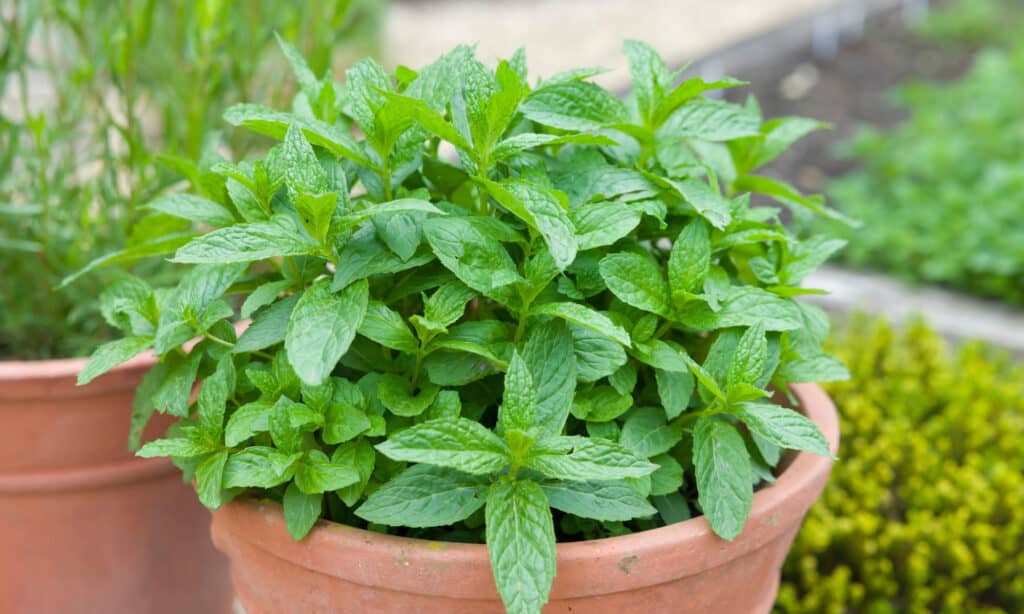
- Dill: Dill is another great herb to plant with rhubarb. It helps to improve the flavor of rhubarb dishes and it also attracts beneficial insects.
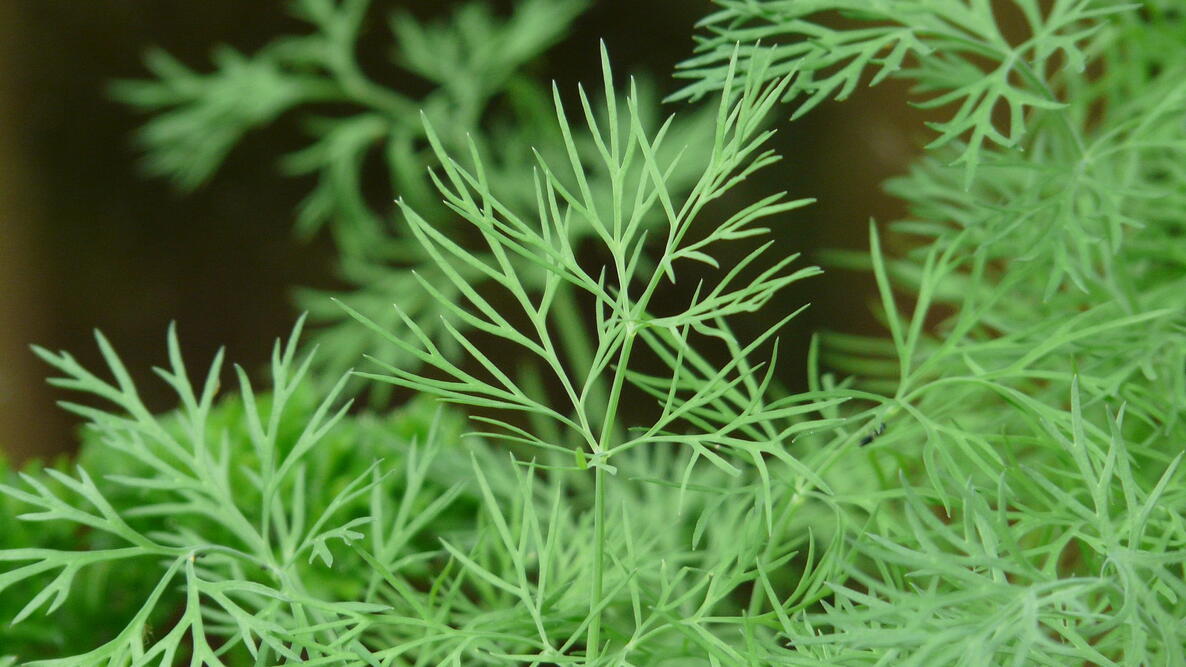
- Parsley: Parsley is a versatile herb that can be used in a variety of dishes. It also helps to improve the flavor of rhubarb and it repels pests.
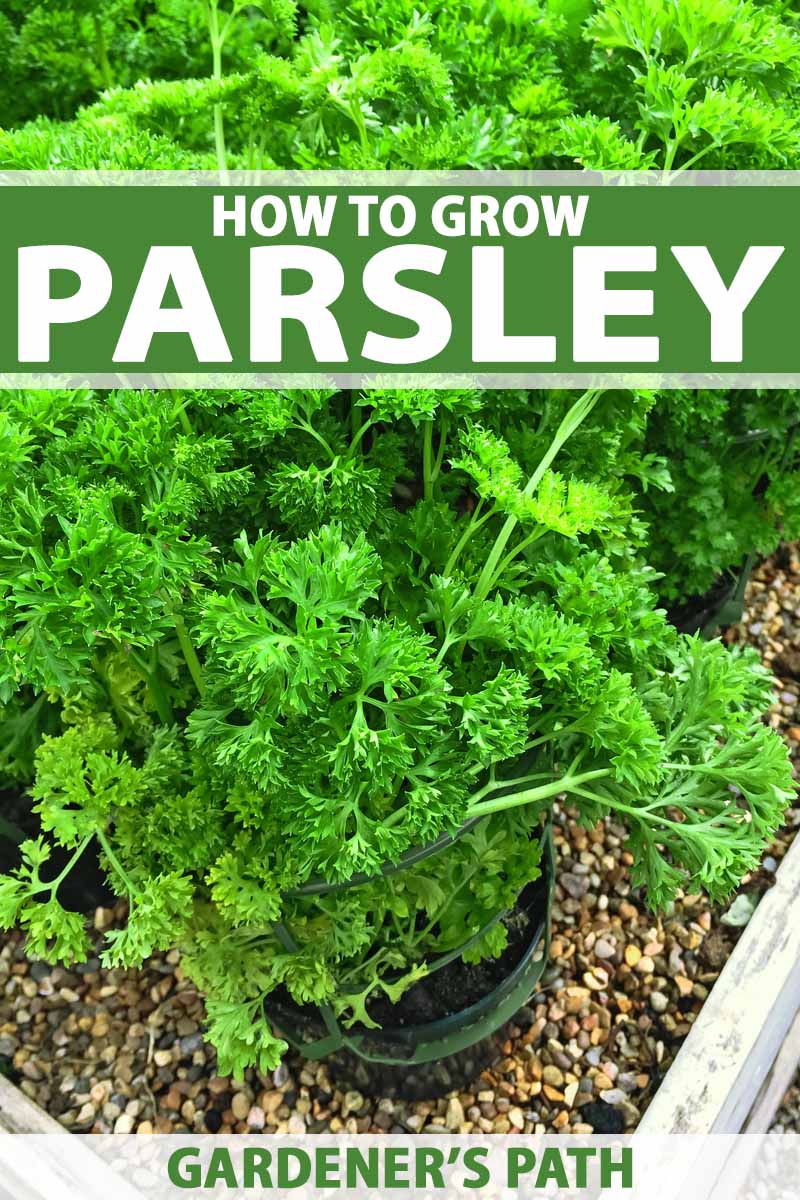
- Chamomile: Chamomile is a calming herb that can help to deter pests. It also helps to improve the flavor of rhubarb dishes.
- Garlic: Garlic is a powerful herb that can help to repel pests and diseases. It also helps to improve the flavor of rhubarb dishes.
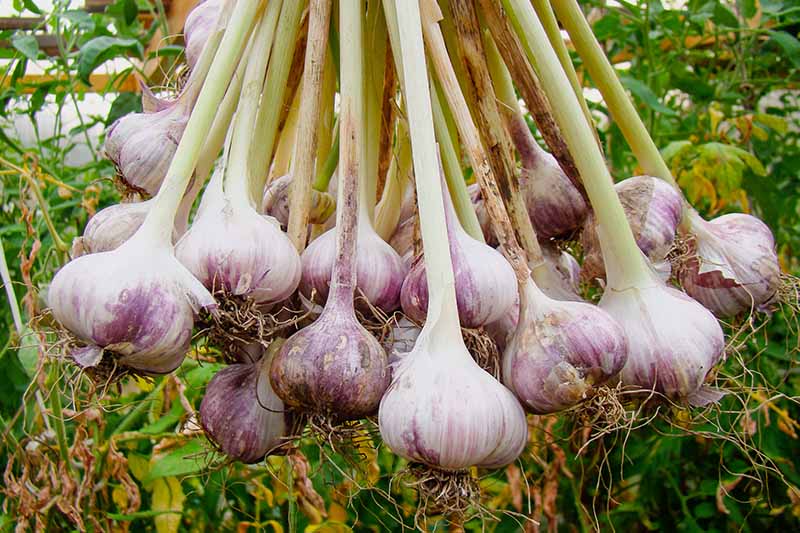
- Lavender: Lavender is a beautiful and fragrant herb that can help to deter pests and diseases. It also helps to improve the flavor of rhubarb dishes.
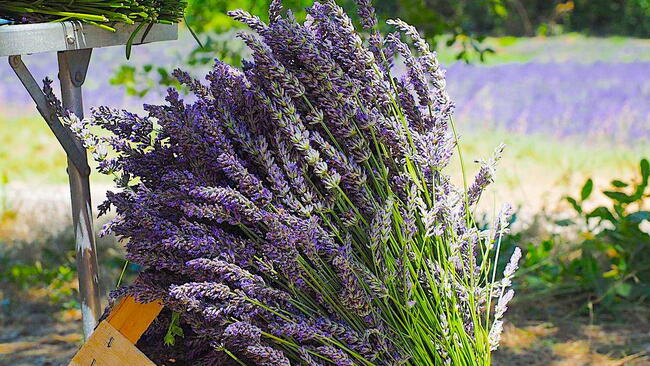
Tips for Creating a Successful Rhubarb Companion Herb Garden
When creating a rhubarb companion herb garden, there are a few things to keep in mind:
- Choose the right location: Rhubarb and herbs need full sun, so choose a location that gets at least 6 hours of sunlight per day.
- Prepare the soil: The soil should be well-drained and fertile. If the soil is poor, amend it with compost or manure.
- Plant the herbs at the same time as the rhubarb: This will help the herbs and rhubarb to establish themselves at the same time.
- Water the garden regularly: Rhubarb and herbs need regular watering, especially during hot weather.
- Fertilize the garden every few months: Use a balanced fertilizer, such as compost tea or fish emulsion.
- Mulch the garden: Mulch helps to retain moisture and suppress weeds.
Conclusion
Rhubarb and herbs can make a great companion planting combination. By planting these two plants together, you can improve the growth, flavor, and disease resistance of your rhubarb. So if you're looking for a way to improve your rhubarb harvest, be sure to plant some herbs alongside it.
Rhubarb is a delicious and versatile vegetable that can be enjoyed in many different ways. But did you know that there are certain herbs that can enhance the flavor and growth of rhubarb?
Some of the best rhubarb companion herbs include:
- Thyme: Thyme is a fragrant herb that has both culinary and medicinal uses. It can help to improve the flavor of rhubarb dishes, and it also has anti-microbial properties that can help to protect rhubarb plants from pests and diseases.
- Chives: Chives are another flavorful herb that can be enjoyed fresh or cooked. They also have insect-repelling properties that can help to keep rhubarb plants healthy.
- Onions: Onions are a great companion plant for rhubarb because they help to deter leaf beetles and weevils. These insects can cause damage to the tender rhubarb stalks, so it's important to keep them away.
- Strawberries: Strawberries are a delicious and attractive ground cover that can help to suppress weeds and improve the drainage around rhubarb plants. They also have some insect-repelling properties that can benefit rhubarb.
If you're looking for ways to improve the flavor and growth of your rhubarb plants, I recommend checking out Gardenia Inspiration. This website has a wealth of information about rhubarb companion planting, as well as other tips for growing healthy rhubarb plants.
FAQ of rhubarb companion herbs
Q: What are some good companion herbs for rhubarb?
A: Rhubarb is a relatively easy-to-grow plant, but it can benefit from the companionship of certain herbs. Here are some of the best companion herbs for rhubarb:
- Brassicas: The brassica family includes cauliflower, broccoli, cabbage, and kale, among others. These plants help to repel pests and diseases from rhubarb.
- Legumes: Rhubarb's relationship with beans and peas is actually beneficial to both plants. The legumes help to fix nitrogen in the soil, which rhubarb can then utilize.
- Strawberries: Strawberries are an excellent companion plant for rhubarb. They help to improve the flavor of the rhubarb, and they also help to deter pests.
- Pumpkins: Pumpkins can help to suppress weeds around rhubarb plants. They also help to improve the soil structure.
- Sunflowers: Sunflowers can help to attract beneficial insects to the rhubarb patch. They also help to shade the rhubarb plants, which can help to prevent them from wilting.
Q: What are some herbs that should not be planted near rhubarb?
A: There are a few herbs that should not be planted near rhubarb, as they can compete with the rhubarb for resources or even harm the plant. These herbs include:
- Chives: Chives can inhibit the growth of rhubarb.
- Garlic: Garlic can stunt the growth of rhubarb.
- Onions: Onions can also stunt the growth of rhubarb.
- Leeks: Leeks can also stunt the growth of rhubarb.
Q: How do I plant companion herbs with rhubarb?
A: When planting companion herbs with rhubarb, it is important to choose herbs that will complement each other's needs. For example, if you are planting brassicas with rhubarb, you will need to make sure that the brassicas have enough space to grow. You will also need to make sure that the herbs are planted in a location that gets plenty of sunlight.
Here are some general tips for planting companion herbs with rhubarb:
- Plant the herbs in a location that gets full sun.
- Space the herbs out so that they have enough room to grow.
- Water the herbs regularly, especially during hot weather.
- Fertilize the herbs every few weeks with a balanced fertilizer.
Q: What are the benefits of planting companion herbs with rhubarb?
A: There are several benefits to planting companion herbs with rhubarb. Here are a few of the most important benefits:
- Companion herbs can help to repel pests and diseases from rhubarb.
- Companion herbs can help to improve the flavor of rhubarb.
- Companion herbs can help to improve the soil structure around rhubarb plants.
- Companion herbs can help to attract beneficial insects to the rhubarb patch.
Q: Where can I find more information about rhubarb companion herbs?
A: There are a number of resources available that can provide more information about rhubarb companion herbs. Here are a few of the most helpful resources:
- The Vegetable Gardener's Bible: This book by Eliot Coleman provides comprehensive information on companion planting, including information on rhubarb companion herbs.
- The Companion Planting Handbook: This book by Louise Riotte provides a detailed overview of companion planting, with a specific section on rhubarb companion herbs.
- The Old Farmer's Almanac: This website provides a list of companion herbs for rhubarb, as well as other gardening tips.
Image of rhubarb companion herbs
5 different images of "rhubarb companion herbs" from Pinterest:
- Chives: Chives are a great companion plant for rhubarb because they help to repel pests. They also add a delicious flavor to rhubarb dishes.
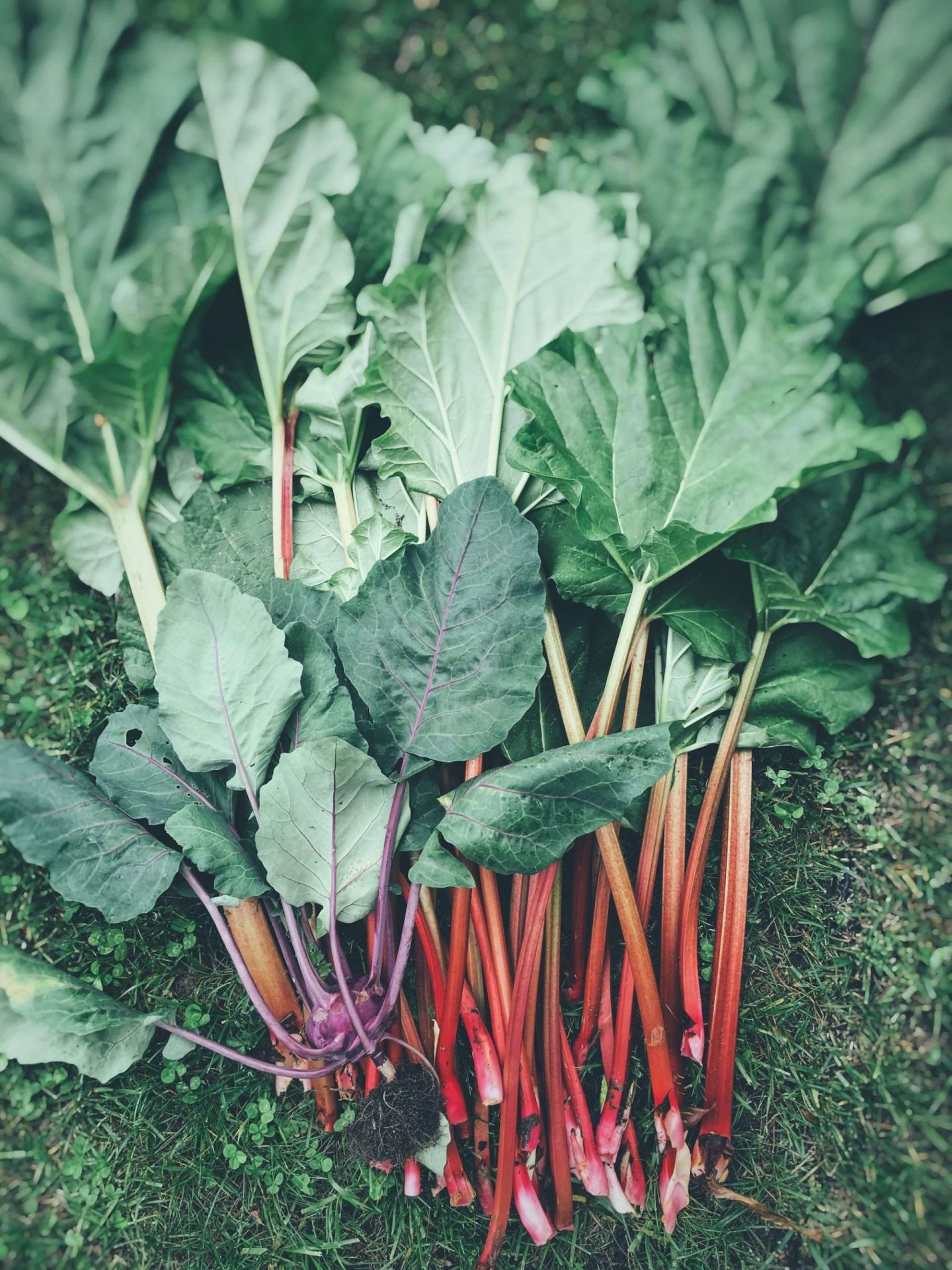
- Garlic: Garlic is another great companion plant for rhubarb. It helps to repel pests and improve the flavor of rhubarb.
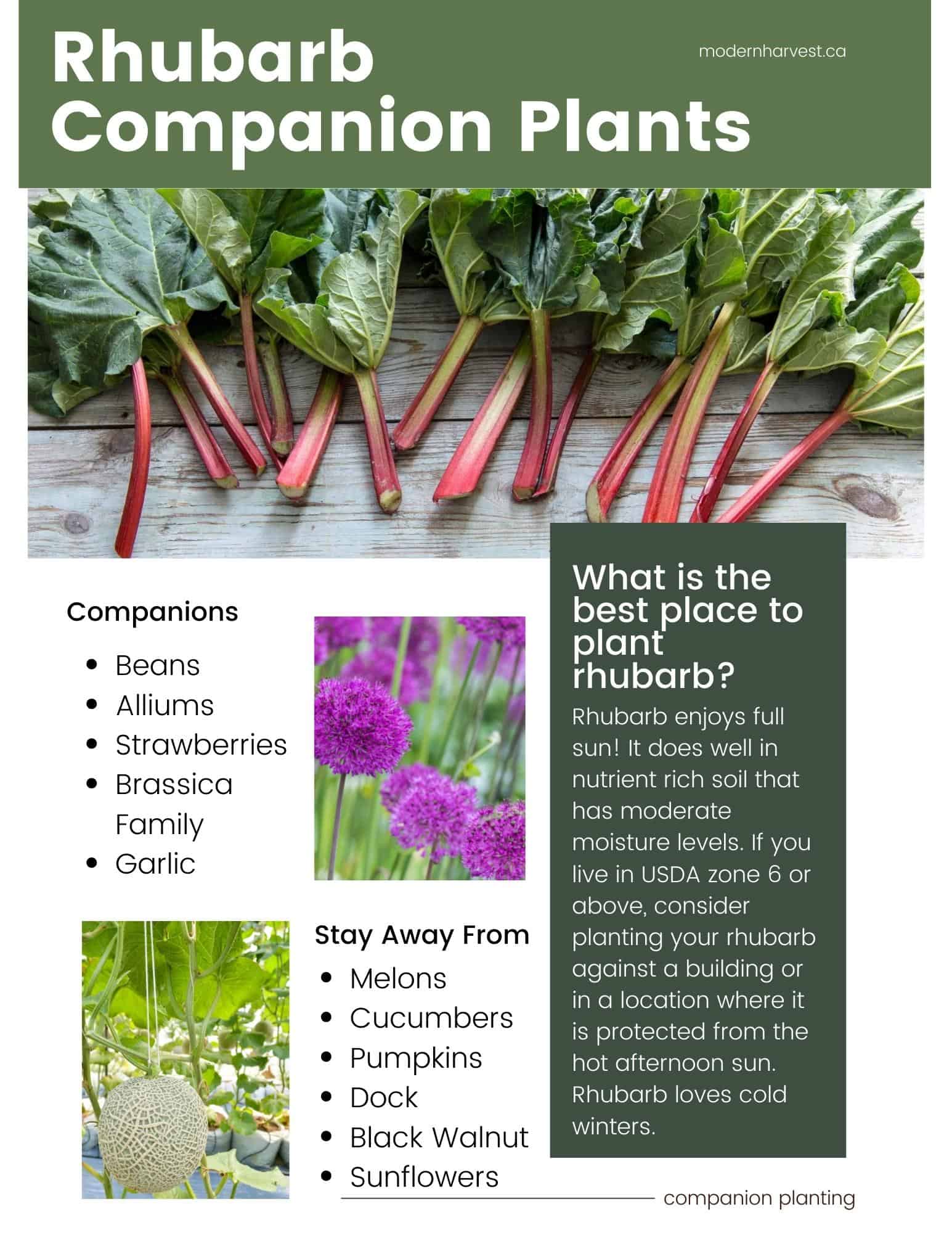
- Onions: Onions are similar to garlic in that they help to repel pests and improve the flavor of rhubarb.

- Marigolds: Marigolds are not technically herbs, but they are a great companion plant for rhubarb. They help to repel pests and attract beneficial insects.
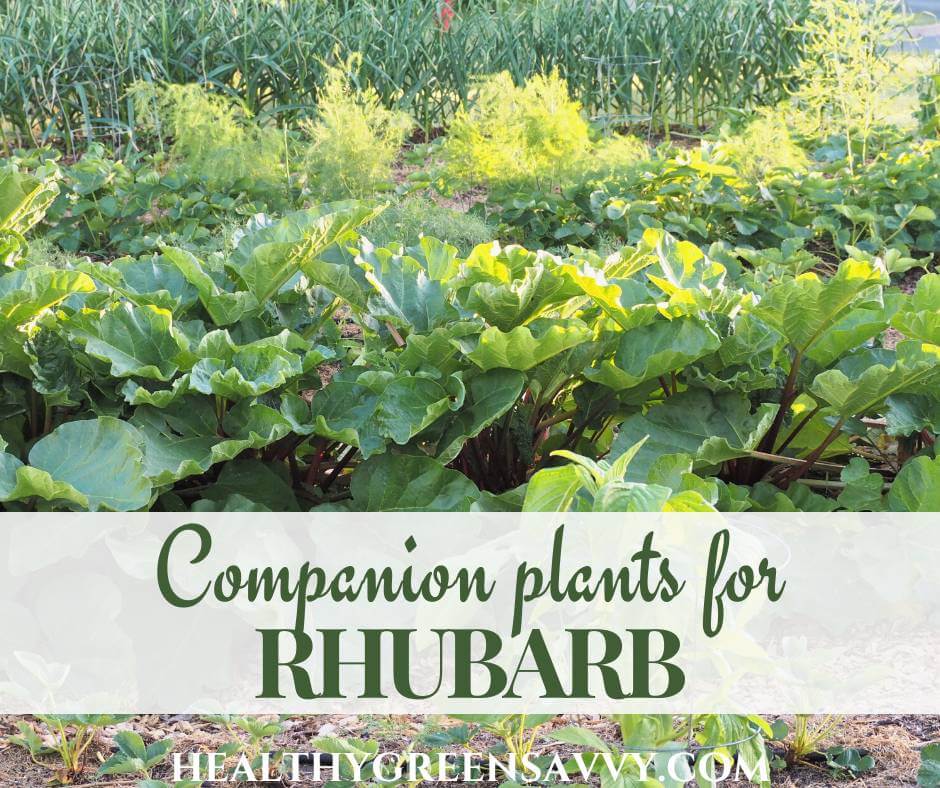
- Nasturtiums: Nasturtiums are another great companion plant for rhubarb. They help to repel pests and attract beneficial insects.

Post a Comment for "The Rhubarb Companion Herb Garden: A Match Made In Heaven"